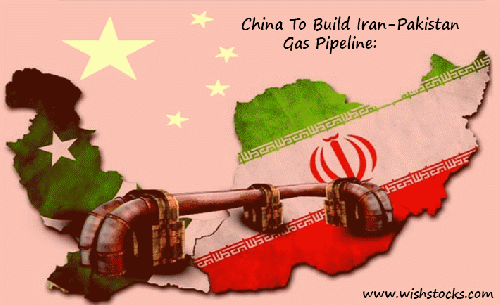Reprinted from Asia Times
Now, with the possibility of sanctions on Iran finally vanishing by late 2015/early 2016, all elements will be in place for the revival of one of Pipelineistan's most spectacular soap operas, which I have been following for years; the competition between the IP (Iran-Pakistan) and TAPI (Turkmenistan-Afghanistan-Pakistan-India) gas pipelines.
The $7.5-billion IP had hit a wall for years now -- a casualty of hardcore geopolitical power play. IP was initially IPI -- connected to India; both India and Pakistan badly need Iranian energy. And yet relentless pressure from successive Bush and Obama administrations scared India out of the project. And then sanctions stalled it for good.
Now, Pakistan's Minister of Petroleum and Natural Resources Shahid Khaqan Abbasi swears IP is a go. The Iranian stretch of the 1,800-kilometer pipeline has already been built. IP originates in the massive South Pars gas fields -- the largest in the world -- and ends in the Pakistani city of Nawabshah, close to Karachi. The geopolitical significance of this steel umbilical cord linking Iran and Pakistan couldn't be more graphic.
Enter -- who else? -- China. Chinese construction companies already started working on the stretch between Nawabshah and the key strategic port of Gwadar, close to the Iranian border.
China is financing the Pakistani stretch of IP. And for a very serious reason; IP, for which Gwadar is a key hub, is essential in a much larger long game; the $46 billion China-Pakistan economic corridor, which will ultimately link Xinjiang to the Persian Gulf via Pakistan. Yes, once again, we're right into New Silk Road(s) territory.
And the next step regarding Gwadar will be essential for China's energy strategy; an IP extension all the way to Xinjiang. That's a huge logistical challenge, implying the construction of a pipeline parallel to the geology -- defying Karakoram highway.
IP will continue to be swayed by geopolitics. The Japan-based and heavily US-influenced Asian Development Bank (ADB) committed a $30 million loan to help Islamabad build its first LNG terminal. The ADB knows that Iranian natural gas is a much cheaper option for Pakistan compared to LNG imports. And yet the ADB's agenda is essentially an American agenda; out with IP, and full support to TAPI.
This implies, in the near future, the strong possibility of Pakistan increasingly relying on the China-driven Asian Infrastructure Development Bank (AIIB) for infrastructure development, and not the ADB.
Recently, the IP field got even more crowded with the arrival of Gazprom. Gazprom also wants to invest in IP -- which means Moscow getting closer to Islamabad. That's part of another key geopolitical gambit; Pakistan being admitted as a full member, alongside India, of the Shanghai Cooperation Organization (SCO), something that will happen, soon, with Iran as well. For the moment, Russia-Pakistan collaboration is already evident in an agreement to build a gas pipeline from Karachi to Lahore.
Talk to the (new) Mullah
So where do all these movements leave TAPI?
The $10 billion TAPI is a soap opera that stretches all the way back to the first Clinton administration. This is what the US government always wanted from the Taliban; a deal to build a gas pipeline to Pakistan and India bypassing Iran. We all know how it all went horribly downhill.
The death of Mullah Omar -- whenever that happened -- may be a game changer. Not for the moment, tough, because there is an actual Taliban summer offensive going on, and "reconciliation" talks in Afghanistan have been suspended.
(Note: You can view every article as one long page if you sign up as an Advocate Member, or higher).






